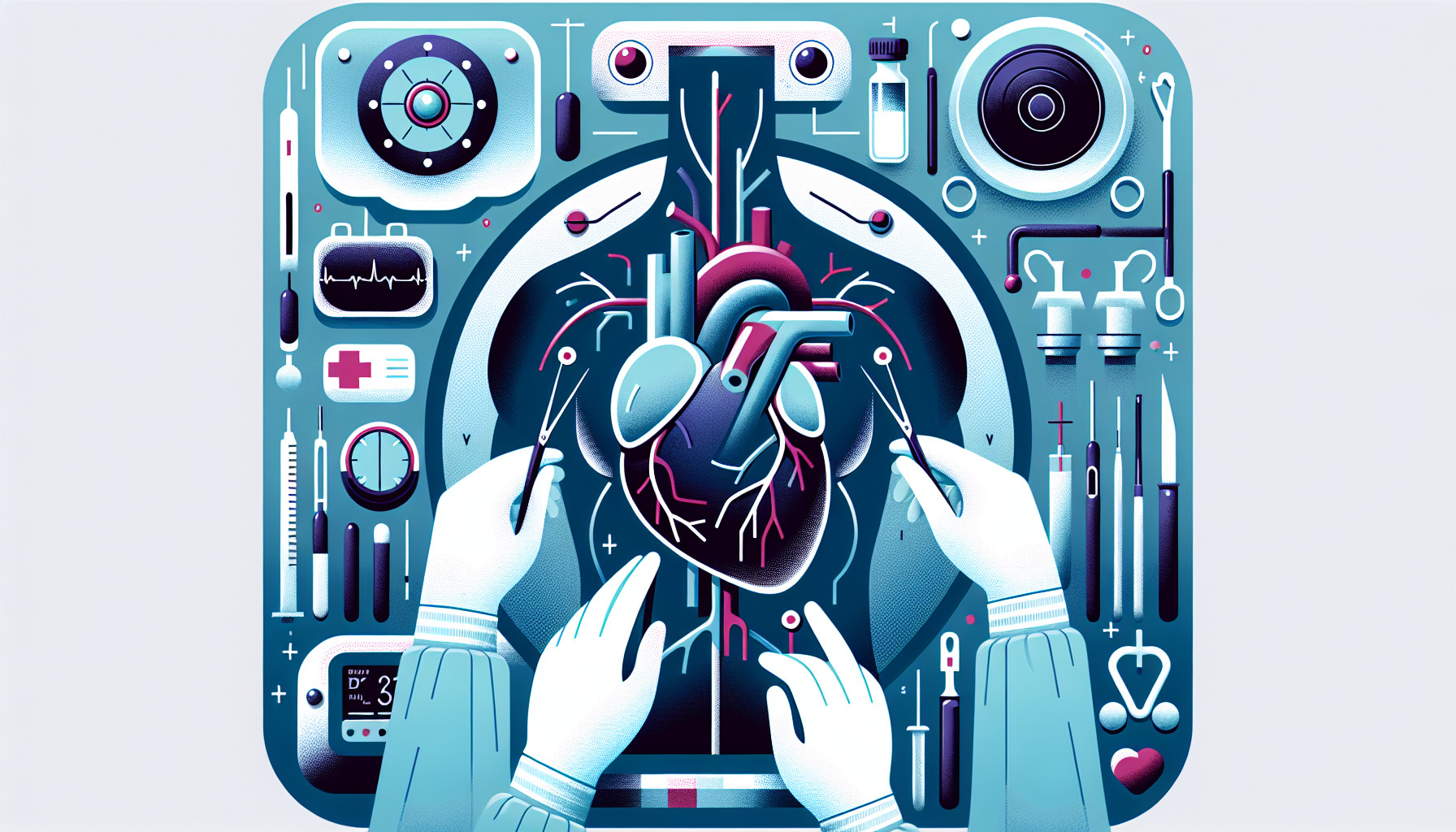Our Summary
This research paper is about a specific type of heart surgery known as Off-Pump Coronary Artery Bypass Grafting (OPCABG). The study is examining how beneficial this procedure might be for patients who have kidney problems before they go into surgery. The final results and potential benefits are still being determined. The central picture in the paper is a photo of two doctors, Dr. Worku and Dr. Gaudino.
FAQs
- What are the potential benefits of OPCABG in patients with preoperative renal dysfunction?
- Who are Dr Worku and Dr Gaudino?
- What is the central message of the article about coronary artery bypass?
Doctor’s Tip
Tip: It is important to follow your doctor’s recommendations for post-operative care, including taking any prescribed medications, attending follow-up appointments, and participating in cardiac rehabilitation. This will help ensure a successful recovery from coronary artery bypass surgery.
Suitable For
Patients who are typically recommended for coronary artery bypass surgery are those with significant narrowing or blockages in their coronary arteries that are causing symptoms such as chest pain (angina) or shortness of breath. These patients may also have a history of heart attacks or other complications related to coronary artery disease. Additionally, patients who have not responded well to other treatments such as medication or lifestyle changes may be recommended for coronary artery bypass surgery.
Timeline
Before coronary artery bypass surgery:
- Patient undergoes a series of diagnostic tests, such as a coronary angiogram, to determine the extent of blockages in the coronary arteries.
- Patient may undergo lifestyle changes and medication management to control symptoms and reduce the risk of complications.
- Patient may experience symptoms such as chest pain, shortness of breath, fatigue, and dizziness due to reduced blood flow to the heart.
- Patient may be hospitalized for monitoring and further evaluation if symptoms worsen or become more frequent.
After coronary artery bypass surgery:
- Patient is closely monitored in the intensive care unit immediately after surgery for any complications or signs of infection.
- Patient may experience pain, discomfort, and fatigue in the days following surgery as the body heals.
- Patient undergoes physical therapy and rehabilitation to regain strength and mobility.
- Patient may need to make lifestyle changes, such as quitting smoking, adopting a heart-healthy diet, and participating in regular exercise to reduce the risk of future heart problems.
- Patient will have follow-up appointments with their healthcare team to monitor progress, adjust medications, and address any concerns.
What to Ask Your Doctor
What is the purpose of a coronary artery bypass surgery?
Am I a candidate for OPCABG (off-pump coronary artery bypass grafting) or traditional CABG (on-pump coronary artery bypass grafting)?
What are the risks and potential complications associated with a coronary artery bypass surgery?
How long is the recovery process after the surgery?
Will I need to make any lifestyle changes after the surgery?
What is the success rate of the procedure in patients with preexisting renal dysfunction?
How long will the effects of the surgery last?
Will I need to take any medications following the surgery?
What follow-up appointments or tests will be necessary after the surgery?
Are there any alternative treatment options available for my condition?
Reference
Authors: Gaudino M, Worku B. Journal: J Thorac Cardiovasc Surg. 2020 Apr;159(4):1305-1306. doi: 10.1016/j.jtcvs.2019.04.027. Epub 2019 Apr 24. PMID: 31103208
